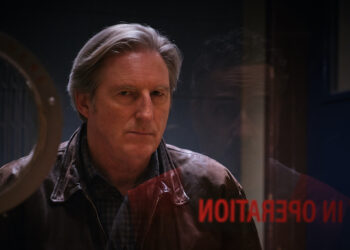STATE OF THE MEDIA: In the last 12 months, the government has made its feelings known about its distrust of the media, and the media has done some real soul-searching. The Media magazine asked experts to give their opinions on the state of our industry from a political, academic, international and commercial point of view. Judith February – head of Idasa’s political information and monitoring service – tackles the state of the media from a political perspective in the second of the four-part series.
If some in the media have been making life uncomfortable for the country’s politicians then, equally, it’s been an uncomfortable year for the media in general. Taking the view that the media was treating its president, Jacob Zuma, and the party itself unfairly, the ANC in 2007 proposed a new Media Appeals Tribunal (MAT) to adjudicate the balance between freedom of speech on the one hand, and dignity and privacy on the other.
Since then, unsurprisingly, the media and government have been on a collision course. After several meetings, preceded by allegations and counter-allegations, an uncomfortable truce persists between the two though, there is talk of some type of ‘co-regulation’ of the media. Quite what this means remains unclear.
Many of the ANC’s views on the media cannot be faulted, specifically when concerns are raised regarding the increasing ‘juniorisation’ of newsrooms, the stranglehold of monopolies on public opinion, and the poor quality of some reporting.
In addition, there are very real concerns in South Africa regarding precisely whose voices the mainstream print media reflects – the poor and marginalised, or those with access to resources? Yet, while the ANC has the right diagnosis in some of its analysis of the state of the media, it fails dismally in providing the correct prescription.
A Media Appeals Tribunal (MAT) will not solve the challenges the ANC is concerned about. Any regulation will be frankly meaningless, and will simply have the consequence of clipping the media’s wings and acting as a deterrent to investigative journalists wary of being hauled before a tribunal.
Recently, the University of Witwatersrand held a conference that provided the opportunity for journalists to do some self-reflection. As former Constitutional Court justice Kate O’ Regan said there, “democracies are noisy places” – yet each participant, including the media, should continually “reflect on its rights and responsibilities”.
While government has sought to limit journalists’ freedom at times, it can be argued that another major threat to a robust media is concentrated ownership of news media. This debate has escalated, and the launch of The New Age newspaper – owned by key Zuma backers, the Guptas – was, in a sense, an attempt at introducing a more ‘government-friendly’ perspective on politics.
In March, GCIS spokesperson Jimmy Manyi said government would be starting its own newspaper to replace Vu’kuzenzele. It is unlikely that the latter and The New Age will bring the diversity needed for more balanced reportage in South Africa.
While South Africans have a variety of news sources, it is radio that is the most utilised, most affordable and most linguistically diverse. The percentage reach of newspapers in the country remains very low. In fact, in 2008 it was estimated that only one in five adults actually read newspapers. However, the tabloid print market has grown robustly in recent years and has an increased circulation, particularly within working-class black areas.
Illiteracy, cost, the majority of newspapers being in English and the dearth of newspapers in rural areas obstruct equal access to news and information. This also means that the newspapers simply reflect their readers’ bias, and do not necessarily provide a voice for those in society who are marginalised by poverty and inequality. Of course, the debate will always arise as to whether the media has a responsibility at all to reflect varied viewpoints. In a country as unequal as South Africa, and where so many stories are yet to be told, the short answer must be yes.














